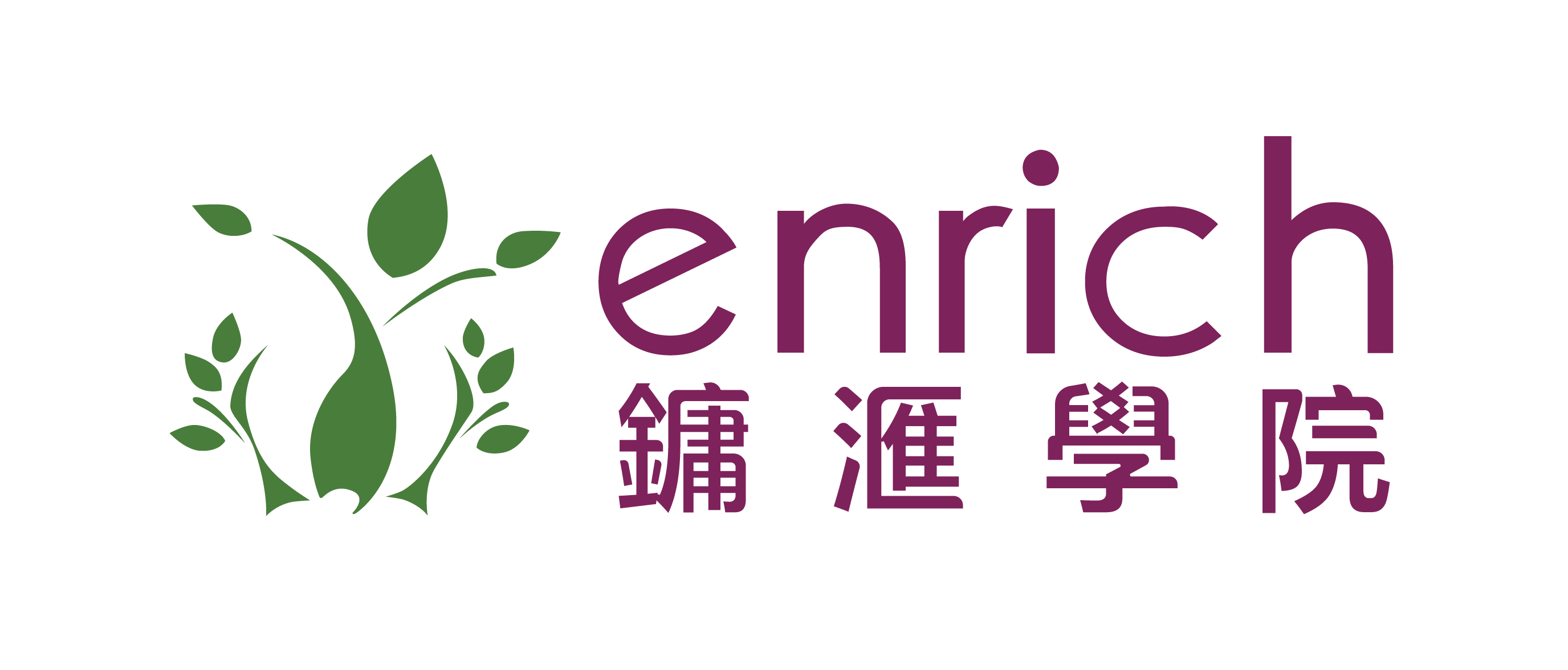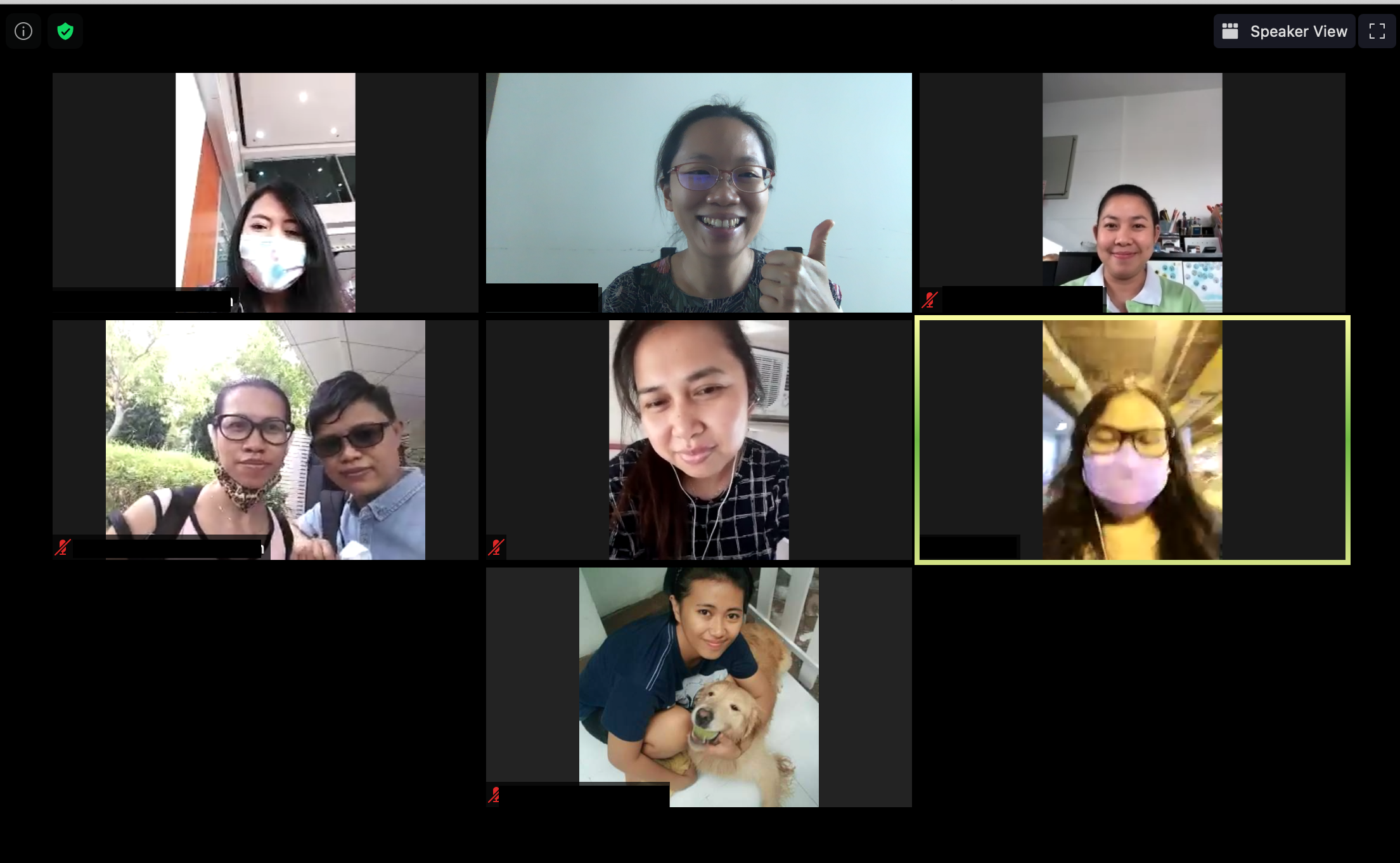HK01: Preparing to start a business on Sundays off – the road home for a domestic worker in HK
The following interview with Enrich graduate, Arlene Saga, is translated from Traditional Chinese. The original article was published by HK01 on August 6, 2021, as the third in a series of articles on migrant domestic workers. In addition to graduating from our programmes, Arlene was also an Enrich ambassador as well as a member of our Programmes Committee. At the time of this interview, Arlene had just moved back home for good and we could not be more thrilled for her - we hope her story can inspire other domestic workers to also plan for the future!
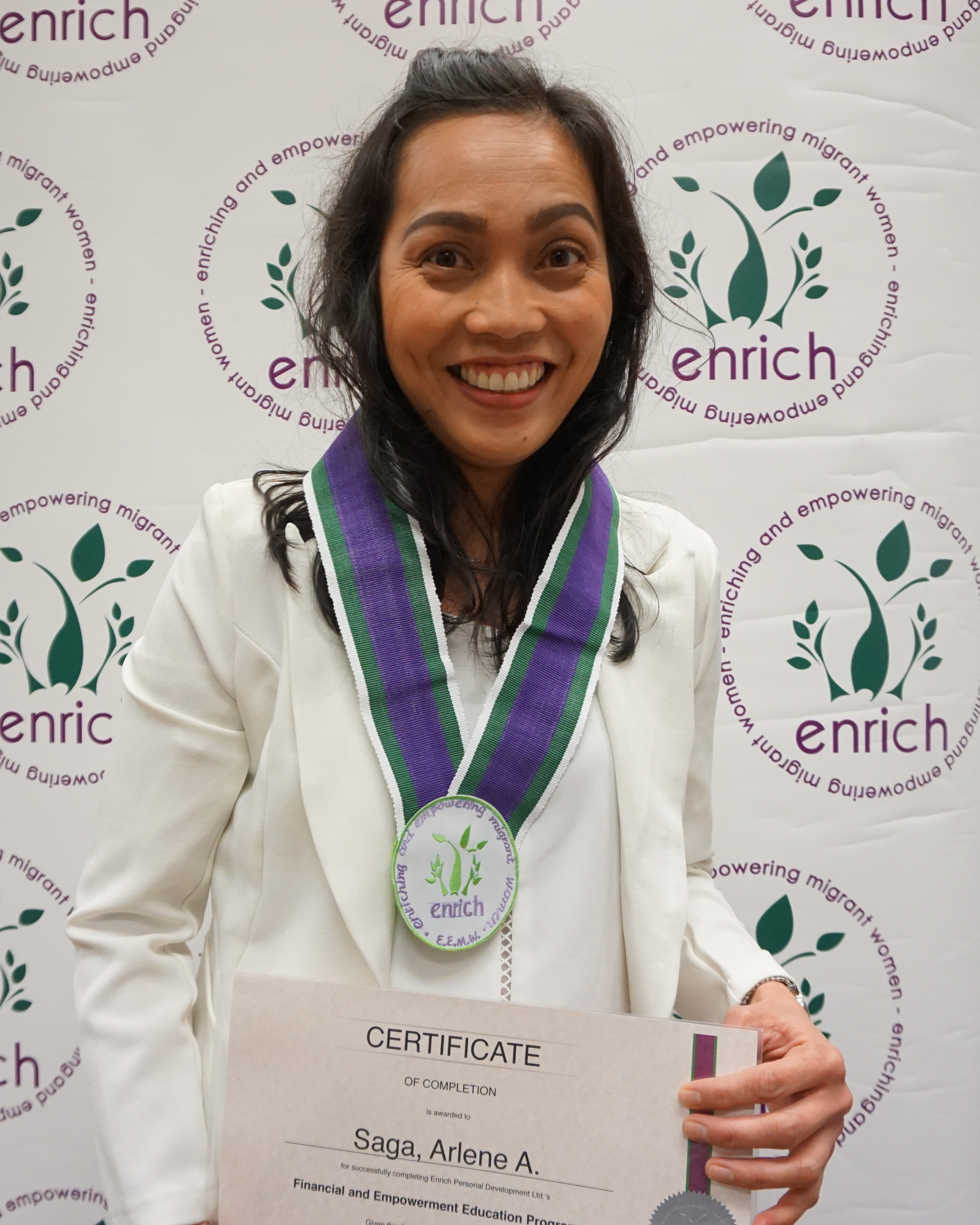
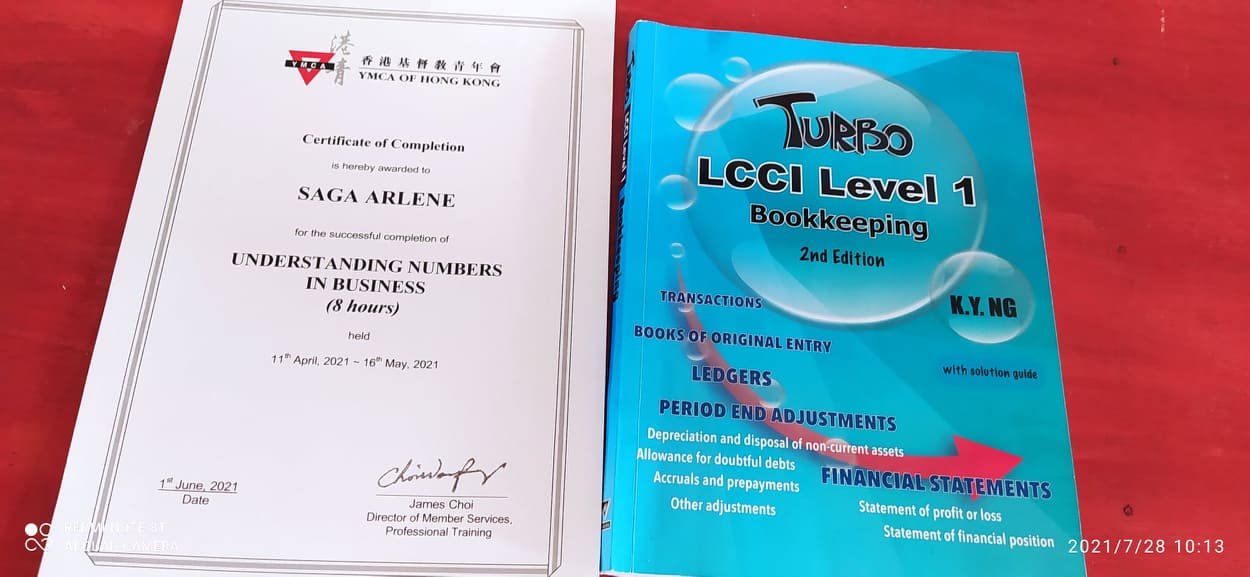
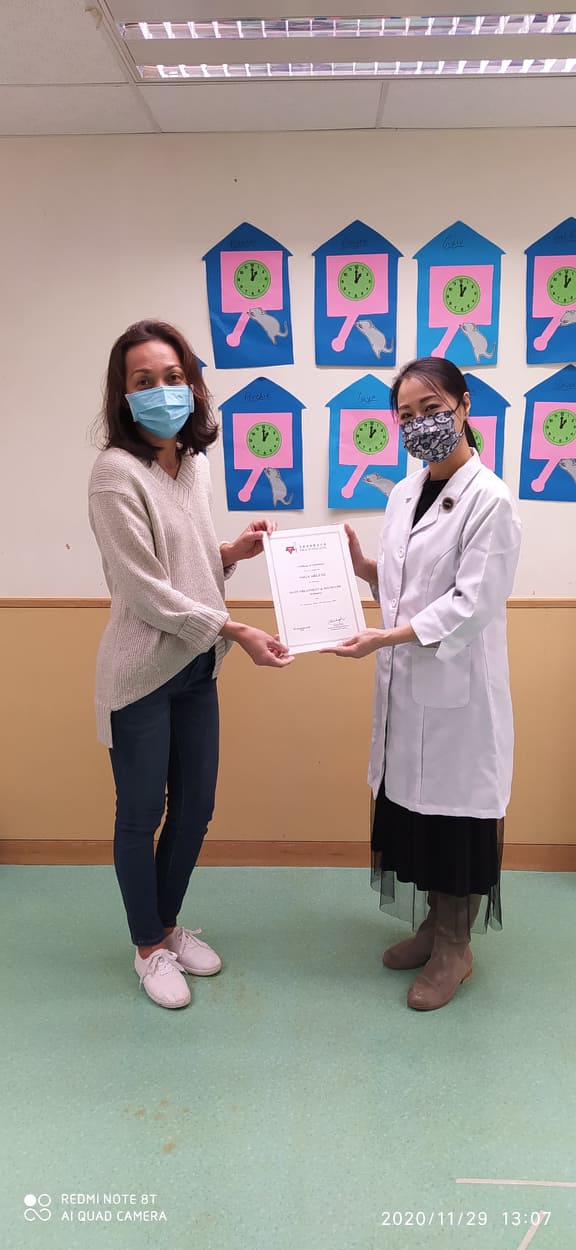

Author: Alexandra Lin
Summary: Arlene has worked abroad for 15 years, and her experience is similar to most Filipino domestic workers in Hong Kong. She came to work in a foreign country to be a breadwinner for her family, earning money to pay off debts and pay school fees for her children and younger siblings; each month, she packs chocolate, shampoo, shower gel, other food and daily necessities into the many cardboard boxes that always don’t seem to be enough. On her rest day, the boxes are sent to a shopping mall, a street corner or under a flyover in Central that are also frequented by other domestic workers. They are then moved by a logistics company.
3 weeks ago, Arlene finally got on a plane return home. It took a total of 12 years from when she first arrived in Hong Kong in early 2009. In her words: “This is a matter for regret.”
“Who will pay for my university fees?”
When Arlene’s daughter hears Arlene is coming home, her reaction was “horror” – “Who will pay for my university fees?”, Arlene recalls. In the Philippines, pre-university education has always been free. In 2018, a new education bill was passed by the Philippine Congress, making more than 100 public universities and technical colleges provide free tuition. But good private universities still charge high fees.
Based on the data provided by Moneymax and Philippine financial information website imoney, the baseline for tuition fees for private universities in the Philippines is 110,000 pesos (approximately HK$17,000) per year. Depending on the major and university, tuition fees can reach a high of 300,000 pesos (approximately HK$46,000) per year. This figure does not include expenses, which are for transportation, board and lodging in big cities where many universities are located. According to data from the Philippine Statistics Authority, the average annual income of a Filipino family in 2018 was only about 313,000 pesos (approximately HK$48,000). This goes to show that a good university is a heavy burden for the average Filipino family.
Arlene has invested large amounts of money into her daughter’s tuition fees since she was in kindergarten to enable her to receive a high-quality education. It was also to ensure her daughter would have a chance in getting into a competitive elementary school. Arlene’s painstaking effort and early investment soon paid off, and her daughter successfully enrolled in a competitive engineering school. But university tuition remains a problem.
Although Arlene had made the decision to return home months ago, Arlene waited until June this year to tell her daughter on the phone that she was coming home. Her daughter, who is still in junior high, “responded like most children” to the news. Arlene recalls she was excited, then frightened and worried about her future. All Arlene could do was patiently explain to her daughter that she has plans: “You focus on what you should be doing, and I’ll do my part. The results will naturally follow.”
Arlene has always been honest with her daughter with the family's income and expenses. She explained to her daughter why it was important she go to a good university, and why this would require sacrifices in the form of things she needs or wants to buy. This time, Arlene also had a "showdown" with her daughter; she explained her business plan upon her return home and the estimated profits and losses to her daughter. However, her daughter responded with “Are you that good?", and "Can this really make money?"
The long road home for domestic workers
In 2009, Arlene’s father was diagnosed with kidney disease. In order to repay the loan for his various medical expenses, Arlene quit her job as a real estate agent in the Philippines and came to Hong Kong to work as a domestic worker, where her monthly income instantly doubled. This became the main source of income for the family. After the loan was fully repaid, Arlene focused on paying for her younger brother’s college fees, as he had previously dropped out of school due to the family’s circumstances. Now, there is much less financial pressure on the family compared to before, but Arlene was still sending 60% (approximately HK$2,800) of her income back home every month. The remaining 40% (approximately HK$1,800) was used for daily expenses and an emergency fund. Like most migrant domestic workers, it was difficult for Arlene to save up a considerable amount for her future needs.
Considering the large number of domestic workers and a general lack of data on the duration domestic workers spend working overseas, statistical results often do not reflect reality. However, experts who have long studied the issue of overseas labor in the Philippines have pointed out that migrant domestic workers often have to work abroad for more than ten to twenty years before returning home. Seefar, a social enterprise dedicated to the rights and interests of disadvantaged groups, released a survey report in 2016 and found that 77% of Indonesian and Filipino migrant domestic workers wanted to immigrate again after returning home. In particular, 89% of Filipino migrant domestic workers wanted to immigrate again.
In an interview with HK01, Mary Lou Alcid, an expert on migrant workers in the Philippines, also stated that due to a lack of work experience and skills, there are few employment options for migrant domestic workers.
Knowing this, Arlene thought of doing business on her own. Arlene had made plans early, taking into account her age and desire to be with her family, "This is the only way I can maintain a higher income after I go home.” Once her daughter leaves home for university, and if Arlene continues to work in Hong Kong, she will completely lose the ability to spend more time with her daughter.
Study, exploration and searching for business opportunities
Planning is always easier than action. In 2018, Arlene’s employer’s friend by chance suggested that Arlene should enrol in a course with Enrich, a charity that provides basic financial education and personal coaching for migrant domestic workers. Since then, Arlene has begun planning for her savings, recording her expenses and considering various business options using what she has learned at Enrich.
"It was really difficult at the beginning." says Arlene. In order to save enough money in 3 years, Arlene and her family discussed reducing remittances to half of her monthly income. To prepare for her business back home, Arlene took accounting classes at YMCA or classes on basic savings and entrepreneurial knowledge at Enrich every Sunday. On weekdays, she had to find time to complete her homework from these classes.
“I tell my friends I only have certain weekends free, as I have to use my rest days to go to classes.” Arlene’s efforts have helped her reduce her personal expenses. Even when she meets up with friends once a month, she often urges everyone to go hiking together – an activity that requires the least costs. In order to meet her savings goals in a short amount of time, Arlene only spent a few hundred dollars in expenses, and saved all of the remaining money for her business.
At first, Arlene didn't have a specific idea about what type of business she wanted to do; a laundromat, restaurant or nail art. She even returned home for an onsite investigation to understand the local market. As the restaurant industry would be difficult for her to get into, Arlene quickly dismissed the idea. "But [during the pandemic] people are still interested in nail art." As there were no nail extension or phototherapy services in her local area, Arlene discovered she could use this business opportunity and started to take nail technician courses at YMCA.
Many of Arlene’s friends have also taken Enrich’s courses, but there are not many migrant domestic workers who are willing to sacrifice their weekly rest days to return home earlier. Arlene understands their point of view, but for her, “If I don’t learn and understand accounting figures, how will I know if my business is doing well?” Arlene’s efforts are all to be able to return home to her daughter as soon as possible.
At the time of this interview, Arlene had already returned to the Philippines. During the interview, the network at her quarantine hotel was not smooth and her video signal was occasionally interrupted. However, Arlene says she is very excited to “leave prison” in 3 days.
In 3 days, she will be able to return to a home she has been away from for more than 10 years.
